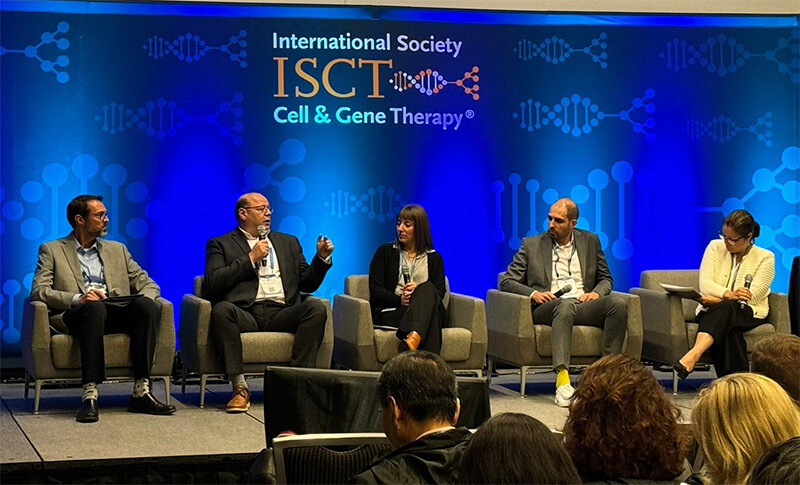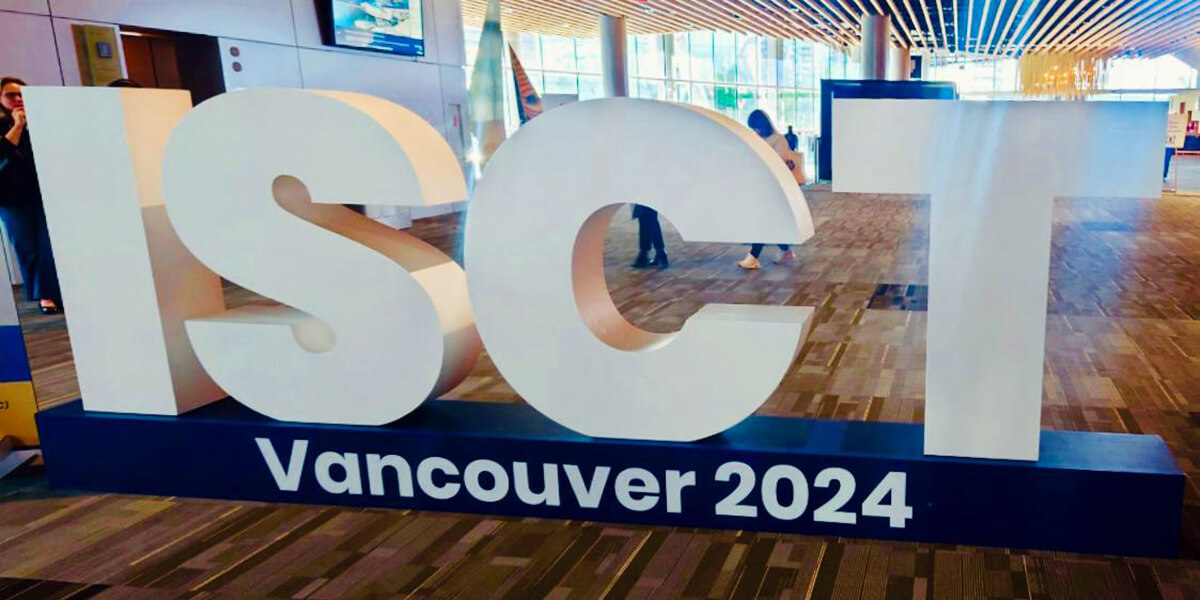ISCT’s annual meeting brought together a panel of experts in Vancouver to examine how the principles of Industry 4.0 can overcome the persistent bottlenecks that limit commercial scale-production and patient access for lifesaving cell and gene therapies.
The panel consisted of a breadth of industry experience with leaders – from Cellares, Xcell Biosciences, Lyell Immunopharma, Quell Therapeutics, and Chimeric Therapeutics – who joined forces to unpick the pathways to enabling data-driven manufacturing and dismantle the ‘norm’ of semi-manual processes that are unable to achieve economies of scale.
A central theme was the absolute importance of generating high-quality, structured data across all stages of production and product analytics. As Shannon Eaker stated,
“We need better quality data, and we need it to be shared – that’s what will enable AI, machine learning, and next-gen manufacturing.”
The ability to harness this data is the catalyst for Industry 4.0 adoption, enabling advanced automation, predictive modelling, and autonomous decision-making.

Arturo Araya outlined how Cellares’ automated, end-to-end manufacturing platform is designed to collect unified data across the entire workflow, from incoming materials to product release. This integration allows for the application of AI and machine learning to optimize and de-risk commercial manufacturing. Arturo went on to explain that the Cellares technology can reduce batch costs by up to 50% at scale by getting both cost of goods reduction and massive throughput increase.
Automated, closed cell therapy manufacturing technology certainly took center stage at ISCT this year with the launch of Ori biotech’s IRO and Cytiva’s Sefia, as well as Xcell Biosciences’ Foundry technology, currently in beta phase.
Beyond the data, the panel also examined practical strategies for accelerating adoption of advanced manufacturing methods. Melissa Defrancesco brought her process development perspective to the conversation, describing Lyell’s seamless implementation of the cell shuttle, resulting in a process that was “executed just as we would have hoped and the product looks remarkably similar”. Others emphasized focusing first on robust process fundamentals like defining critical quality attributes before layering in automation.
There were calls for cross-industry collaboration and data sharing to train more powerful AI/ML models. As Aleks Guvenel put it,
“There’s so much undisclosed process knowledge out there – finding ways to anonymize and share those learnings could really accelerate us.”
There are, of course, roadblocks and innovation needed to get to Industry 4.0. While academia has benefited from flexible R&D, Chow asked how 4.0 principles could be applied in those settings. Defrancesco and Eaker suggested embracing quality-by-design and defining target product profiles to pave the way.
Regulatory uncertainty is another ongoing roadblock, though some progress is being made with pathways like FDA’s AMT designation, which aims to facilitate transformative technologies. Ultimately, what the regulators need is clear demonstration of robust process control and product quality.
The lasting message from the panel was that realizing the full curative potential of cell therapies will require our field to rapidly evolve its manufacturing paradigms. Collectively embracing Industry 4.0 – with integrated data streams, predictive modeling, and autonomous systems – may be key to finally unlocking scalable, economically sustainable production of these revolutionary medicines for all who need them.







